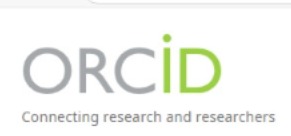Reconstruction Of Islamic Education Goals In The Modern Era Perspectives Of Western Classical Philosophers And Muslim Philosophers
DOI:
https://doi.org/10.63889/pedagogy.v17i2.299Keywords:
Reconstruction of Islamic Education, Educational Goals in the Modern Era, Western Classical Philosophers, Muslim Philosophers, Comparative Philosophy of EducationAbstract
This study examines the concept of educational objectives and Islamic educational objectives based on the thoughts of Western classical philosophers (Plato and John Dewey) and Muslim philosophers (Al-Ghazali, Ibn Sina, and Al-Farabi). Plato saw education as a means of achieving universal wisdom and truth through moral and intellectual development, while John Dewey emphasized education as a pragmatic tool for forming individuals who think critically and can actively participate in a democratic society. On the other hand, in the context of Islamic education, Al-Ghazali emphasized education as a spiritual process to get closer to God, Ibn Sina combined intellectual education and science to achieve human perfection, while Al-Farabi emphasized education as a tool to achieve moral happiness and social balance. The problem that arises is the difference in focus: general education (Plato and Dewey) emphasizes more on the development of rationality, morality, and social engagement, while Islamic education emphasizes more on the balance between spirituality, rationality, and moral responsibility. The research method used is comparative literature analysis, where the main thoughts of these figures are analyzed philosophically to identify ideal educational goals. The results showed that general education, according to Plato, focused on wisdom and morality, while Dewey emphasized active learning relevant to practical life. Islamic education, according to Al-Ghazali, is more oriented towards spirituality, Ibn Sina on rationality and science, and Al-Farabi on moral and intellectual balance to create an ideal society. The contribution of this research is to answer the challenges of modern education by reconstructing the current educational goals so that education can create individuals who can think critically, be ethical or moral, and have strong life skills. A need for the reconstruction of holistic educational goals that develop intellectual, moral, and spiritual as a result of the synthesis of thinking about the goals of Western philosophy education and Islamic philosophy. Strategic steps taken based on the results of the research include the development of an integrated curriculum, the implementation of active and adaptive learning, the integration of character education and ethics in the curriculum, the use of technology for spiritual and moral education, teacher training in the modern era and the formation of value-based progressive policies with a holistic approach.
References
[1] Achmad Sudaryo, "Dynamics of Islamic Education in Indonesia," INTERDISCIPLINARY J. Qual. Quant. Res., vol. 1, no. 1, pp. 1–9, Dec. 2023, https://doi.org/10.61166/interdisiplin.v1i1.1.
[2] Fattah Santoso, M. Abdul, And A. Khoirudin, "Typology of Islamic Educational Philosophy: A Study of Human Concepts and Educational Goals Based on Classical Islamic Philosophy," Afkaruna, vol. 14, no. 1, 2018, https://doi.org/10.18196/AIIJIS.2018.0081.75-100.
[3] S. A. Sukisno, "Review of the concept of prulalis and multicultural in Islamic religious education," vol. 17, no. April, pp. 118–127, 2024.
[4] W. Damayanti, S. Sutarto, D. P. Sari, and A. R. Nasution, "Neuroscience in the Thought of Al-Ghazali, Al-Farabi and Ibn Sina," Indones. J. Innov. Multidisciplinary Res., vol. 2, no. 3, pp. 21–29, May 2024, https://doi.org/10.31004/ijim.v2i3.86.
[5] T. I. Istiqomah, "Tracing the Principles of Islamic Education through Classical Philosophy; Socrates, Plato, and Aristotle," vol. 2, no. 6, pp. 152–165, 2024.
[6] M. Z. Nur Falah, M. Rohmah, S. Surbhi, and M. Amiir, "Progressive Education John Dewey: Its Relevance To Islamic Education In Indonesia," El -Hekam, vol. 7, no. 1, p. 28, Jun. 2022, https://doi.org/10.31958/jeh.v7i1.5782.
[7] I. Fadhlullah, "Criticism of John Dewey's Educational Humanism Thought," vol. 2, no. 1, pp. 1–23, 2019.
[8] S. Wa. P. et al., Quantitative, Qualitative and Combination Research Methods. 2015.
[9] E. a. Fiantika, Wasil M, Jumiyati, Honesti, Wahyuni, Jonata, Qualitative Research Methodology. In Qualitative Research Methodology, no. March. 2022. [Online]. Available: https://scholar.google.com/citations?user=O-B3eJYAAAAJ&hl=en
[10] M. Y. Balaka, "Quantitative research methods," Metodol. Researcher. Educators. Qualitative, vol. 1, p. 130, 2022.
[11] R. B. J. L. Christensen, Educational Research Quantitative, Qualitative and Mixed Approaches, vol. 11, no. 1. 2019. [Online]. Available: http://scioteca.caf.com/bitstream/handle/123456789/1091/RED2017-Eng-8ene.pdf?sequence=12&isAllowed=y%0Ahttp://dx.doi.org/10.1016/j.regsciurbeco.2008.06.005%0Ahttps://www.researchgate.net/publication/305320484_SISTEM_PEMBETUNGAN_TERPUSAT_STRATEGI_MELESTARI
[12] T. Santoso, Qualitative Research. 2022.
[13] A. Ikhwan, "Integration of Islamic education (Islamic Values in Learning)," 2003.
[14] A. Rasyidi, A. Nabriz, and A. F. Akbar, "The Objectives of Islamic Education: Worldly, Hereafter, and the Formation of Muslim Character in Shaping Individuals with Morality and Positive Contributions," vol. 4, no. 1, pp. 1–20, 2024.
[15] M. K. Umam, "Reconstruction of Islamic education integration in".
[16] N. Hasibuan, character education transformation: Towards Superior and Sustainable Human Resources. 2024.
[17] M. T. Ridlo Maghriza and M. Nursikin, "The Approach to Value Education in Islamic Philosophy: An Analysis of the Contributions of Imam Al-Ghazali and Ibn Sina," Affection J. Researchers. and Eval. Educators., vol. 5, no. 2, pp. 295–314, May 2024, https://doi.org/10.59698/afeksi.v5i2.253.
[18] N. Hidayat, "Comparison of Western educational philosophy and Islamic education," Pharmacogn. Stomach., Vol. 75, No. 17, pp. 399–405, 2021.
[19] Makmun, "Comparison of Teaching Concepts Between Al-Ghazali and John Dewey," 2008, [Online]. Available: https://www.researchgate.net/profile/Badrul-Hassan/publication/333757762_Falsafah_Pragmatisme_John_Dewey_dan_Pembelajaran_Sepanjang_Hayat_dalam_'Muallaf'/links/5e146a95299bf10bc39678ab/Falsafah-Pragmatisme-John-Dewey-dan-Pembelajaran-Sepanjang-Hayat-dalam
[20] S. Zubaidah, "21st Century Skills Integrated Character Education," J. Researcher. and Pengkaj. Educator Science. e-Scientist, vol. 3, no. 2, p. 1, 2019, https://doi.org/10.36312/e-saintika.v3i2.125.
[21] I. Tabroni, R. Purnama Sari, R. Apendi, and D. Kurnia Adam, "Character Education of the History of Islamic Civilization," At-tahsin J. Manaj. Educators., vol. 2, no. 1, pp. 27–36, 2022, https://doi.org/10.59106/attahsin.v2i1.59.
[22] M. Mainuddin, T. Tobroni, and M. Nurhakim, "Thoughts on Character Education of Al-Ghazali, Lawrence Kolberg and Thomas Lickona," Attadrib J. Educator. Madrasah Ibtidaiyah Teacher, vol. 6, no. 2, pp. 283–290, 2023, https://doi.org/10.54069/attadrib.v6i2.563.
[23] L. Ariyanti, "Building Character Education in Elementary Schools through 6 Universal Positive Virtues," ELSE (Elementary Sch. Educ. Journal) J. Educator. and Sekol Learning. Basis, vol. 1, no. 3, pp. 107–113, 2017.
[24] E. R. Fatimah, "The Concept of Early Childhood Cognitive Development (Comparative Study of Jean Piaget and Al-Ghozali)," J. Alayya, vol. 1, no. 1, pp. 1–31, 2021.
[25] S. Suparno, "The Concept of Strengthening Children's Moral Values According to Kohlberg," ZAHRA Res. Tought Elem. Sch. Islam J., vol. 1, no. 2, pp. 58–67, Sep. 2020, https://doi.org/10.37812/zahra.v1i2.124.
[26] R. S. Pozo Enciso, O. Arbieto Mamani, and M. G. Mendoza Vargas, "Moral judgment among university students in Ica: A view from the perspective of Lawrence Kohlberg," F1000Research, vol. 11, p. 1428, Dec. 2022, https://doi.org/10.12688/f1000research.125433.1.
[27] S. Wulan, "The Concept of Multiple Intelligences Education and Its Relevance to Islamic Education," J. Educ., Vol. 05, No. 03, pp. 7721–7739, 2023, [Online]. Available: http://jonedu.org/index.php/joe
[28] W. J. Gardner, "rationalists and rationalism in historical perspective," J. Am. Med. Assoc., vol. 167, no. 16, p. 2030, Aug. 1958, https://doi.org/10.1001/jama.1958.02990330126021.
[29] W. E. Wahyudi et al, Discourse on Western and Islamic Educational Philosophy. 2018.
[30] H. Husaini, "The Essence of the Purpose of Islamic Religious Education in Various Perspectives," Cross-Border J. Kaji. Internefara Borders, Diplomacy and Hubs. Int., vol. 4, no. 1, pp. 114–126, 2021.
[31] E. Yanuarti, "Islamic Education in the Perspective of Philosophy of Idealism," J. Educators. Islam, vol. 1, no. 2, pp. 146–166, 2016.
[32] J. Helandri and S. Supriadi, "The Implementation of Islamic Educational Values in a Modern Context: A Review of Practices and Challenges," TA'LIM J. Stud. Educators. Islam, vol. 7, no. 1, pp. 93–116, 2024.
[33] Z. Nafsaka, K. Kambali, S. Sayudin, and A. Widya Astuti, "Dynamics Of Character Education In The Perspective Of Ibn Khaldun: Answering The Challenges Of Modern Islamic Education," J. Indones Impressions., vol. 2, no. 9, pp. 903–914, Sep. 2023, https://doi.org/10.58344/jii.v2i9.3211.
[34] Y. T. Surahman and E. Fauziati, "Maximizing the Quality of Student Learning Using the Learning Method by Doing Pragmatism by John Dewey," J. Papeda J. Publ. Educator. Basis, vol. 3, no. 2, pp. 137–144, Jul. 2021, https://doi.org/10.36232/jurnalpendidikandasar.v3i2.1209.
[35] I. Fatmawati, "The Role of Teachers in Curriculum and Learning Development," Revorma J. Educator. and Thinkers., vol. 1, no. 1, pp. 20–37, Nov. 2021, https://doi.org/10.62825/revorma.v1i1.4.
[36] K. Niamah, "Islamic Education Paradigm Al-Ghazali Perspective," HEUTAGOGIA J. Islam. Educ., vol. 1, no. 1, pp. 59–71, May 2021, https://doi.org/10.14421/hjie.2021.11-05.
[37] Y. Anwar, "Spiritual And Emotional Intelligence Education In Spiritual And Emotional Intelligence Education In Improving Akhlaqul Karimah Perspective Ahmad Improving Akhlaqul Karimah Perspective Ahmad Amin And Al-Ghazali," IHTIROM, vol. I, no. 1, pp. 52–67, 2022.
[38] D. Safitri, Z. Zakaria, and A. Kahfi, "Spiritual Intelligence Education From Al-Ghazali Perspective And Its Relevance To Emotional Spiritual Quotient (ESQ)," Tarbawi J. Thinker. and Educators. Islam, vol. 6, no. 1, pp. 78–98, Feb. 2023, https://doi.org/10.51476/tarbawi.v6i1.467.
[39] D. Raniadi, "Actualization of the Purpose of Islamic Education from the Perspective of Imam Al-Ghazali," Nizham J. Islam. Stud., vol. 11, no. 01, pp. 117–129, Mar. 2023, https://doi.org/10.32332/nizham.v11i01.6547.
[40] B. F. Ash'arie, R. Arif Ma'ruf, and A. Ulum, "Analysis of Islamic Religious Education and Moral Education from the Perspective of Al-Ghazali," Al-Qalam J. Kaji. Islam and Educators., vol. 15, no. 2, pp. 155–166, Dec. 2023, https://doi.org/10.47435/al-qalam.v15i2.2279.
[41] E. Sutrisna and S. Suyadi, "Multi-Level Intellect In The Perspective Of Ibn Sina, The Qur'an, And Neuroscience And Its Relevance To Islamic Education," PARAMUROBI J. Educator. Islam, vol. 5, no. 2, pp. 36–48, Dec. 2022, https://doi.org/10.32699/paramurobi.v5i2.3434.
[42] R. Amalia, "Ibn Sina (Religious-Rational) Thought On Education And Its Relevance To Contemporary Islamic Education," vol. 6, pp. 1–23, 2016.
[43] K. N. L. Mahmudah and Suyadi, "Ibn Sina's Leveled Intellect and Bloom's Taxonomy in Islamic Education in Neuroscience Perspective," Islamic education., vol. 2, no. 2, pp. 172–190, 2017.
[44] A. R. Yuliani, H. Z. Muhammad, K. Hidayatuz Z, A. Adrian, and H. A. Hanif, "The Religious-Rational Ibn Sina and Its Relevance to Contemporary Islamic Education," Nusant. J. Educators. Indones., vol. 3, no. 3, pp. 523–548, Sep. 2023, https://doi.org/10.14421/njpi.2023.v3i3-10.
[45] A. B. Handayani and S. Suyadi, "The Relevance of Ibn Sina's Leveled Intellect Concept in Islamic Education in the Millennial Era," Ta'dibuna Islam. Educ. J., vol. 8, no. 2, pp. 222–240, 2019, https://doi.org/ 10.32832/tadibuna.v8i2.2034.
[46] D. Erdriani and A. Anananda, "Philosophical and Practical Analysis in Al Farabi's Thought in Education," vol. 3, 2024, https://doi.org/10.58192/populer.v3i4.2688.
[47] Agung Setiyawan, "The Concept Of Education According To Al-Ghazali And Al-Farabi (Comparative Study of Thought) Agung Setiyawan," Tarbawiyah, vol. 13, no. 1, p. 52, 2016, [Online]. Available: https://e-journal.ejournal.metrouniv.ac.id/tarbawiyah/article/view/487
[48] Imron Nur Syafaat and Muhammad Masyhuri, "The Relevance of Al-Farabi Islamic Education Thought to Generation Z," Mabahithuna J. Islam. Educ. Res., vol. 1, no. 2 SE-Articles, pp. 162–173, 2023, [Online]. Available: https://ejournal.iaisyarifuddin.ac.id/index.php/mabahithuna/article/view/2940
[49] M. R. Alfazri, I. Probowati, and H. P. Sari, "The Concept of Education in the Perspective of Islamic Philosophy According to Al-Farabi Thought and Its Relevance in the Modern Era," no. 4, 2024.
[50] Nida Nurjunaedah, "Value-Based Education (Theory and Implementation Analysis)," J. Tarb., vol. 21, no. 2, pp. 243–260, 2014.
[51] E. S. Rosali, R. J. Pinem, A. Sudirman, and I. Widiastuti, Multidisciplinary Approach. 2020.
[52] K. Sagala, L. Naibaho, and D. A. Rantung, "Challenges of Character Education in the Digital Age," J. Science And Technology Criteria., vol. 6, no. 01, pp. 1–8, Jan. 2024, https://doi.org/10.53863/kst.v6i01.1006.
[53] A. Asari, I. Widiana, S. Purba, A. Waworuntu, A. Arifin, and ..., Education management in the era of digital transformation, no. June. 2023. [Online]. Available: https://repository.um.ac.id/5446/%0Ahttps://repository.um.ac.id/5446/1/fullteks.pdf.
Downloads
Published
How to Cite
Issue
Section
License
Copyright (c) 2024 Tri Setyo, Rina Murtyaningsih, Selamet Awan Setiawan

This work is licensed under a Creative Commons Attribution-ShareAlike 4.0 International License.






